EU Project Pravo-Justice Summarized the Results of Its Activities in 2021-2023
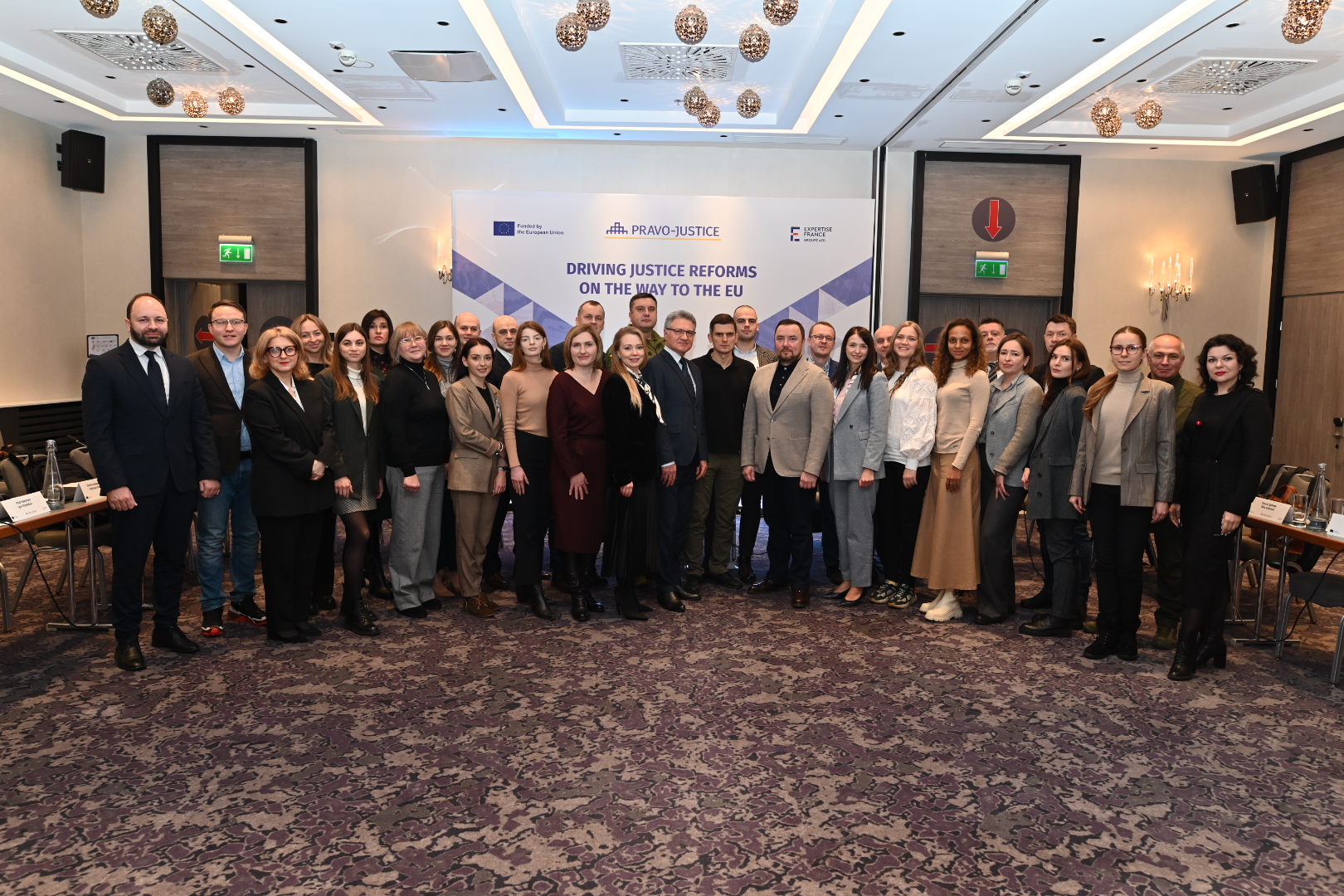
On 24 November, the Steering Committee of EU Project Pravo-Justice was held to present the results of the last six months of Project activities and summarize overall deliverables of Phase 2 of the Project (2021-2023). The event was attended by representatives of EU Delegation to Ukraine and the Embassy of France to Ukraine, Expertise France, national stakeholders, and the Project team.
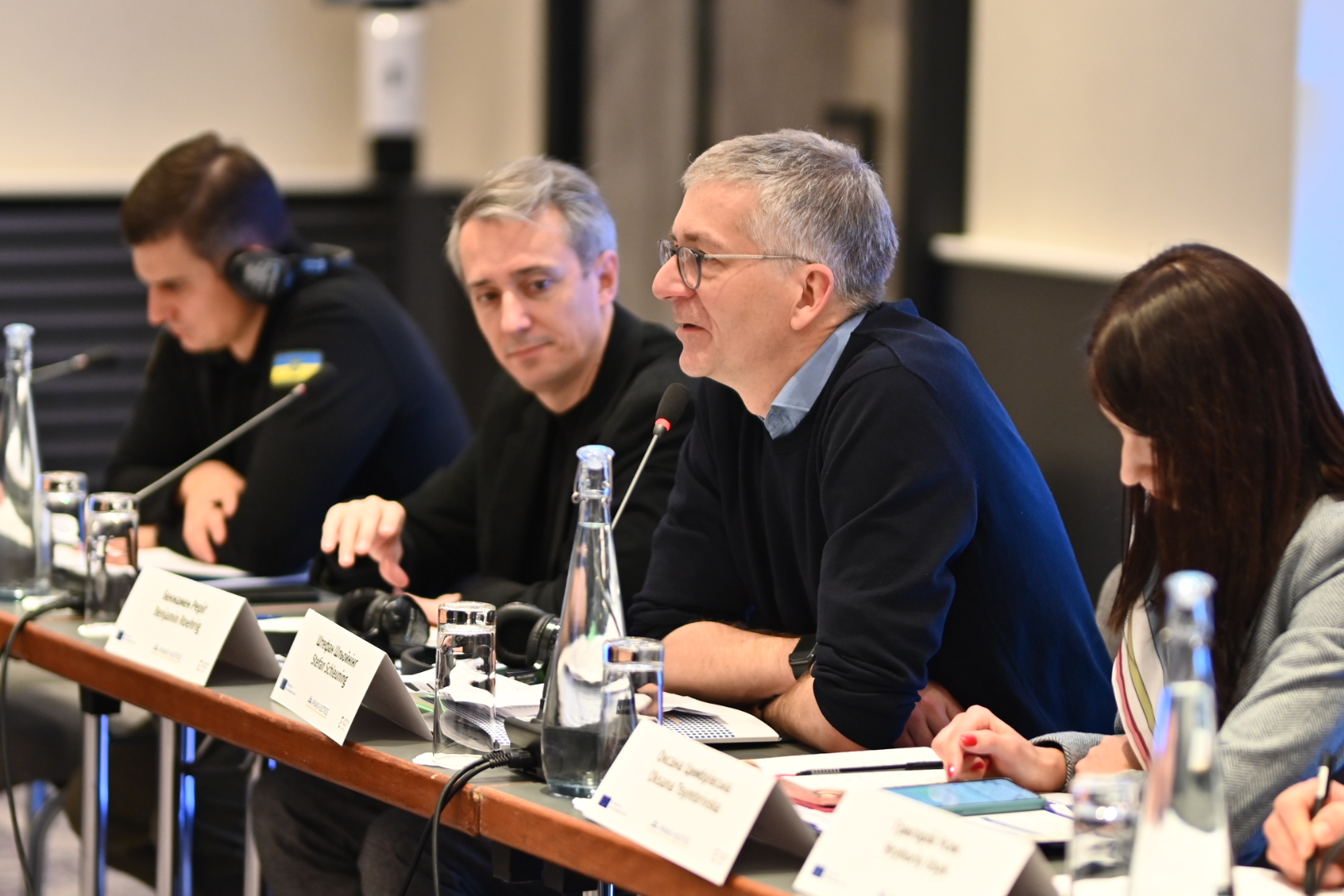
Stefan Schleuning, Head of Cooperation, EU Delegation to Ukraine, confirmed that Ukraine can count on EU support as long as necessary, in particular in judiciary reform.
"Thanks to the efforts of many professionals, the justice sector continued functioning despite Russia’s military aggression. In fact, all our joint efforts in reforming this sector have contributed to Ukraine’s progress towards EU membership. On 8 November, the European Commission published its enlargement report which recommends starting negotiations on Ukraine’s accession to the EU. This is a historic moment. It has been achieved thanks to the great efforts made in reforming the justice sector over the last few years," said Stefan Schleuning when addressing Ukrainian officials and the Project team.
He listed Ukraine’s major achievements in the field of justice reform in recent years which had been made possible, in particular, thanks to the support provided by international partners, and urged not to stop there, as much work was still ahead on the way to the EU.
Benjamin Roehrig, Deputy Head of Mission, Embassy of France to Ukraine, said that transforming Ukrainian justice system is at the heart of Ukraine’s integration into the European Union. He also noted the support provided by international partners during the full-scale military aggression against Ukraine, in particular in investigating war crimes.
"We are committed to further support the transformation of the justice sector in Ukraine... This is part of the future that Ukrainians aspire for, a future founded on the rule of law, and being a part of the European Union," he stressed.
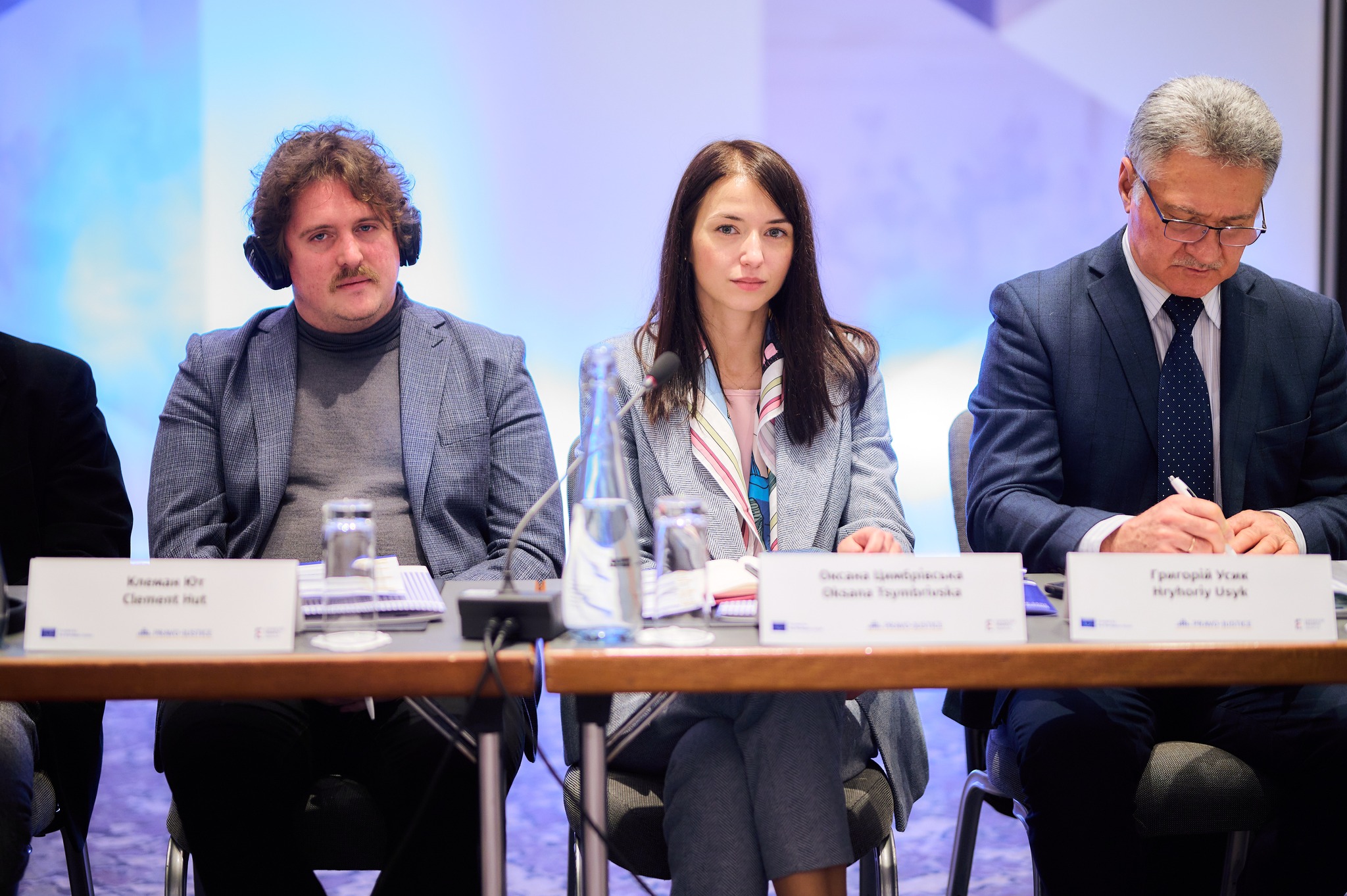
In her turn, Oksana Tsymbrivska, Country Manager of EU Project Pravo-Justice, gave details of the support provided by the Project to implement justice sector reforms on Ukraine’s way to the EU and noted that the Project aimed to address the national stakeholders’ requests as efficiently as possible. She also mentioned the Project’s Flexible Fund.
"Since the beginning of the full-scale invasion, we have reviewed our activities, prioritized them, and added new ones; such as investigating war crimes. We have allocated about €1 million to be able to effectively and quickly address the ad hoc requests made by our beneficiaries. Over this period, we have considered about 30 such requests, particularly those related to logistics (generators, protective equipment, etc.) and IT audit of E-Court," said Oksana Tsymbrivska.
"These are the joint results accomplished by the team and our beneficiaries. We are always ready to provide support to achieve goals on the way to the EU," she emphasized.
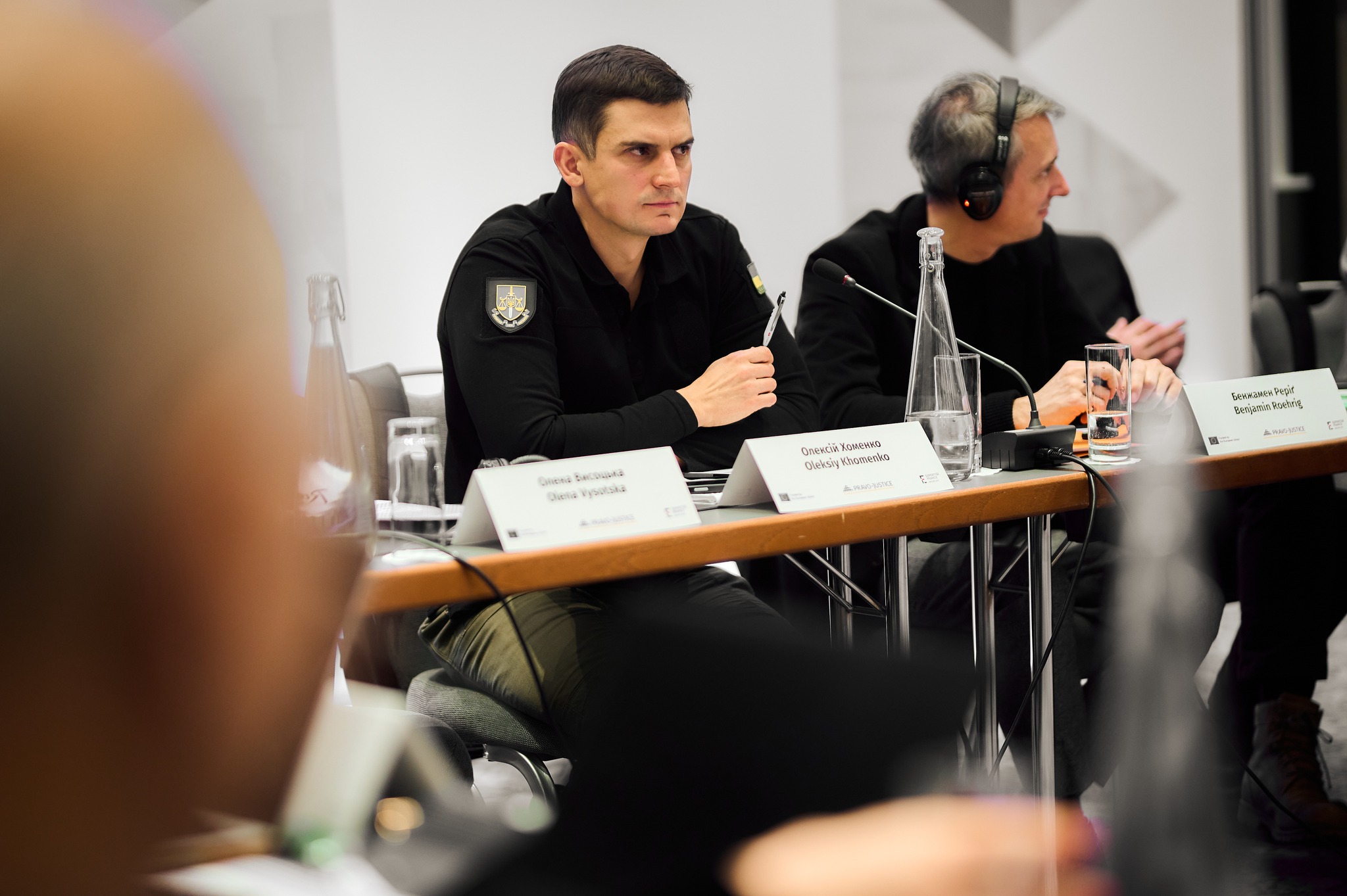
Oleksii Khomenko, First Deputy Prosecutor General, noted that thanks to the EU Project Pravo-Justice and other international organizations, Ukraine’s public prosecutor’s office had been becoming a modern European institution. He thanked for the expert and logistical support provided by the Project, in particular regarding the investigation of war crimes in Ukraine, etc.
"Our cooperation is not limited to investigations of war crimes only, but also covers further implementation of comprehensive reforms so that the public prosecutor’s office become stronger with the rest of pre-trial investigation bodies following its example. Therefore, we hope for further fruitful cooperation," underlined Oleksii Khomenko.
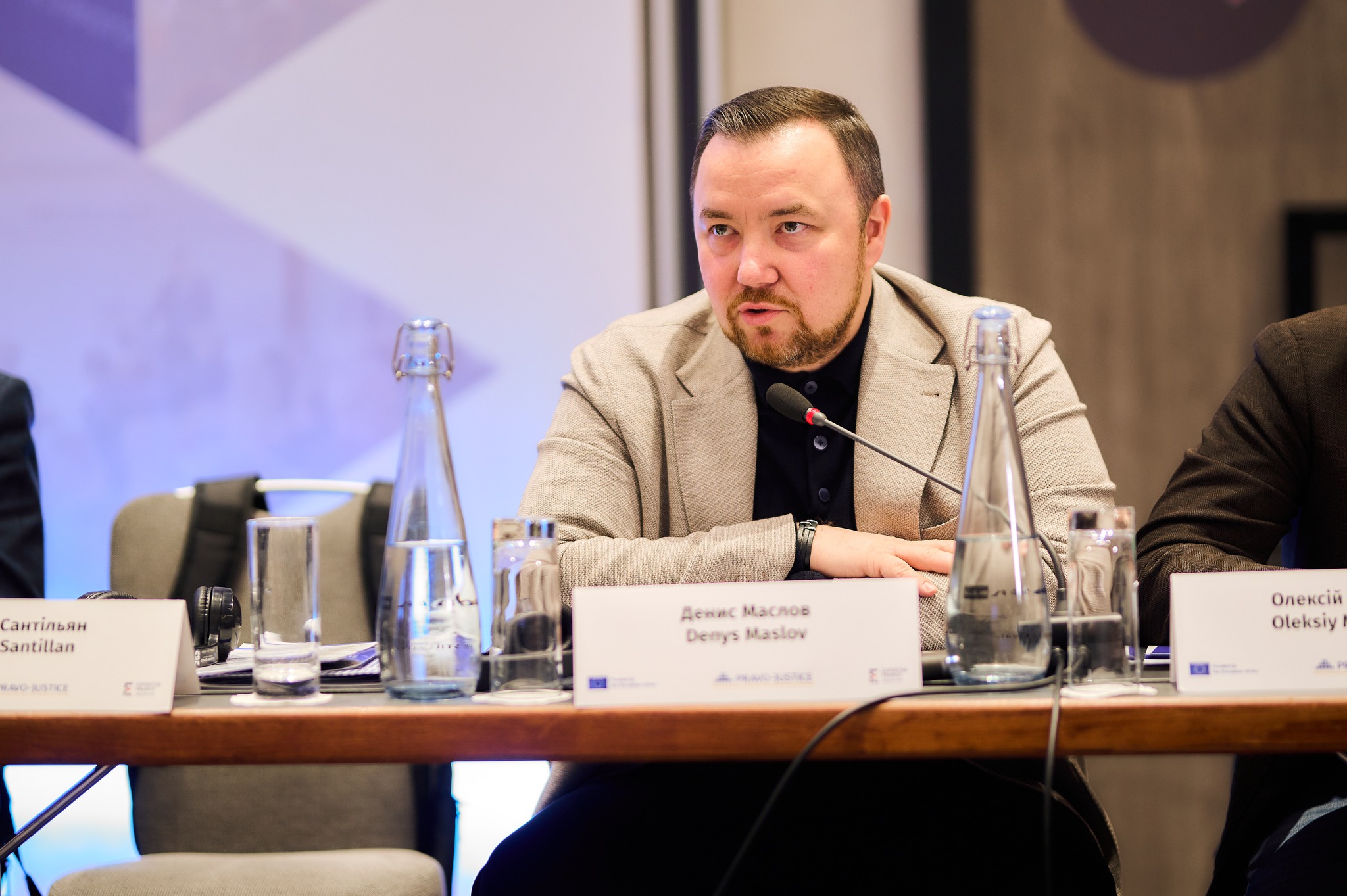
Denys Maslov, Head of the Verkhovna Rada Committee on Legal Policy, also thanked EU Project Pravo-Justice for expert, organizational, and other support.
"In the sphere of European integration, judicial reform and rule of law, along with anti-corruption policy, are the key components. They being cast aside, we will have no successful path to the EU," he said.
Denys Maslov stated that the intensive cooperation between the Project and legislators had recently resulted in the positive assessment by the European Commission of Ukraine’s implementation of the necessary recommendations for joining the EU.
"In matters of implementation of two recommendations – reform of the Constitutional Court and continuation of the judicial reform – the experts of EU Project Pravo-Justice participated directly. There are two reforms – two conditions – that have been fulfilled by 100%. However, the main thing is not the fact that they have been ‘accounted’, but that they will bring considerable results for our entire State. We have implemented something fundamental," emphasized the Head of the Committee.
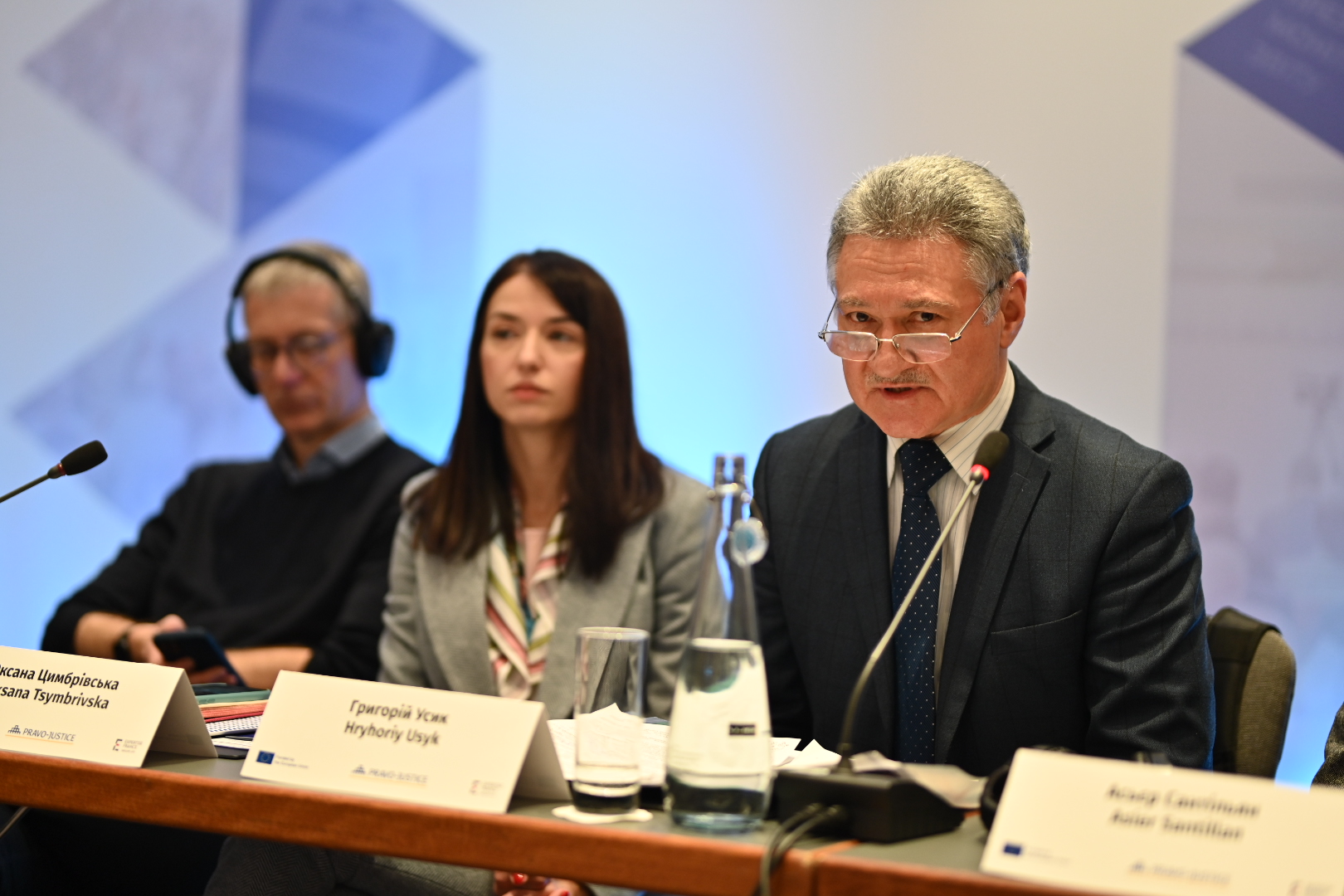
In his turn, Hryhorii Usyk, Chairman of the High Council of Justice, noted that thanks to the help of EU Project Pravo-Justice, the HCJ had been formed rapidly; interviews with candidate members of the High Qualification Commission of Judges of Ukraine had been held within a short period of time, and the authorized HQCJ composition had been appointed. Hryhorii Usyk also stated that, thanks to the support of the Project, the High Council of Justice was granted the observer status with the European Network of Councils of Justice.
Besides, Hryhorii Usyk talked about their plans for the future. "The disciplinary function of the High Council of Justice has been restored. Therefore, number one issue is the formation of the Disciplinary Inspectors Service. In particular, organizational support alongside logistics support for the activities of the selection commission for conducting a competition-based selection of Head of DIS, Deputy Head of DIS, and disciplinary inspectors", he said.
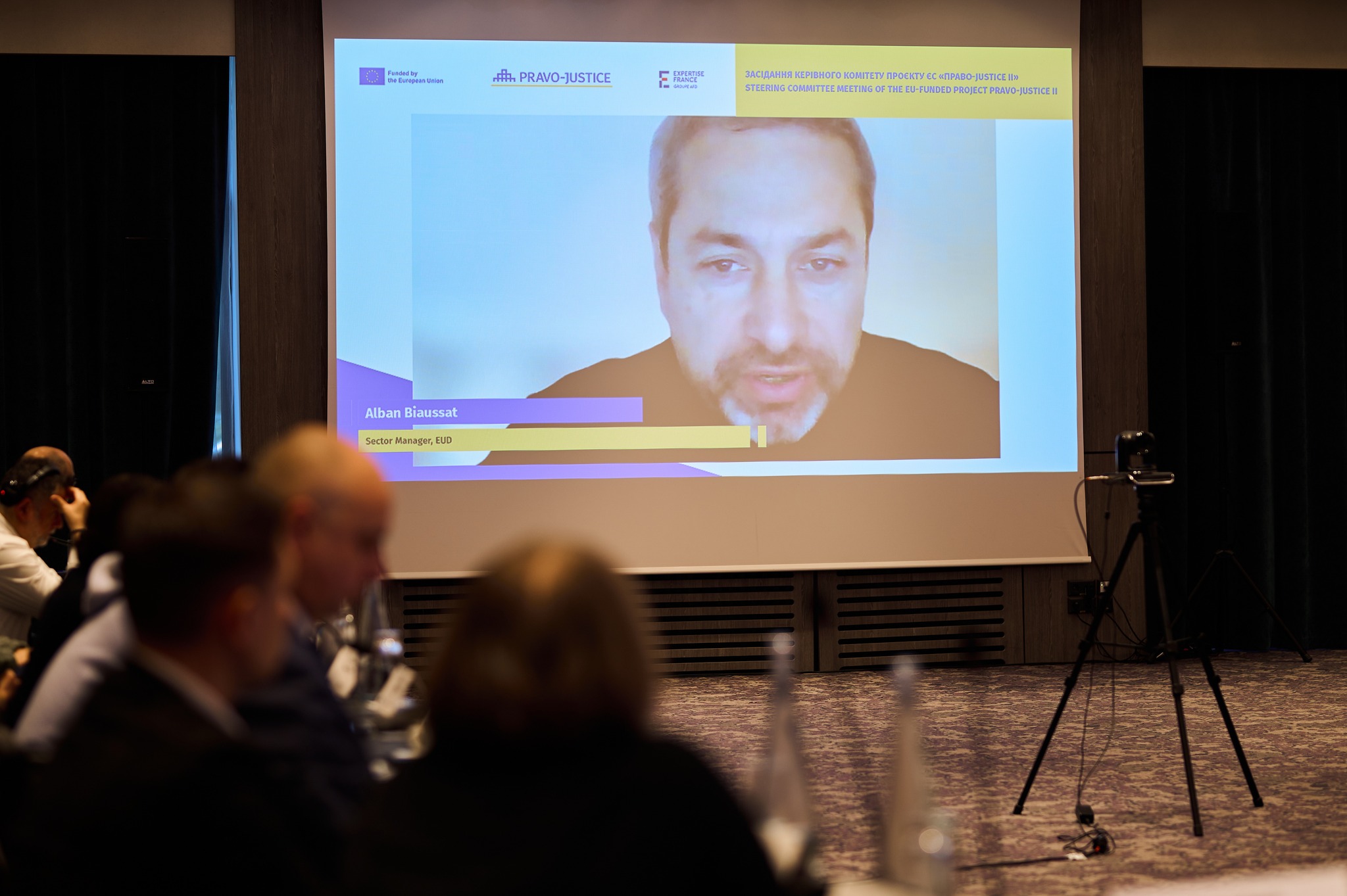
At the end of the Steering Committee Meeting, Alban Biaussat, Sector Manager of the EU Delegation to Ukraine, announced that Phase 3 – the adapted one – of EU Project Pravo-Justice would start in early January 2024.
"The Project will be adapted to the context. There are certain areas in which we work to promote prosecution for international and war crimes; we help the justice sector and the judicial system on the way to the EU, etc. We will also have interaction and cooperation with the civil sector. We will try to further develop EU Project Pravo-Justice as a coordination platform within the justice system bodies and institutions," said Alban Biaussat.
He outlined the main future areas of work for the implementation of EU recommendations, emphasizing the important role of the EU Project Pravo-Justice in this process.
"From the EU side, we can say that the scope of intervention is expanding, there will be more work. We understand that there are many tasks and challenges ahead. I am looking forward to the possibility of continuing our active and productive cooperation," concluded Alban Biaussat.
You can read about the key results achieved by EU Project Pravo-Justice by following the link (.pdf).